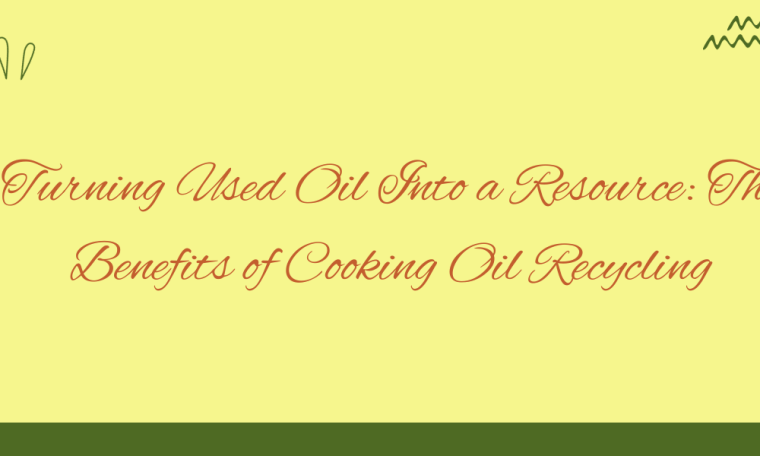
In the pursuit of sustainable living and environmental responsibility, it’s essential to consider every aspect of our daily routines, including cooking practices. Discarding used cooking oil down the drain or into the trash can have detrimental effects on the environment. However, by embracing cooking oil recycling, we can transform this waste into a valuable resource, contributing to a greener and more sustainable future. This article explores the benefits of cooking oil recycling and its positive impact on both the environment and community.
Environmental Impact
One of the primary benefits of cooking oil recycling is the reduction of environmental pollution. Improper disposal of used oil can lead to clogged drains, sewage system issues, and harm to aquatic ecosystems. When cooking oil ends up in water bodies, it forms a layer on the surface, preventing oxygen exchange and endangering marine life. By recycling used cooking oil, we can mitigate these harmful effects and protect our waterways from pollution.
Renewable Energy Production
Recycling used cooking oil is not just an environmentally conscious practice; it can also be a source of renewable energy. Waste cooking oil can be converted into biodiesel, a cleaner-burning alternative to traditional fossil fuels. Biodiesel has lower carbon emissions and can be used to power vehicles and machinery, providing a sustainable energy source that reduces our reliance on non-renewable resources.
Waste Reduction and Landfill Impact
Cooking oil is a common household waste product, and improper disposal contributes to the burden on landfills. When recycled, used cooking oil can be repurposed, reducing the volume of waste in landfills and promoting a more sustainable waste management system. Recycling also minimizes the release of harmful substances that can leach into the soil from improperly disposed oil.
Economic Benefits
Cooking oil recycling programs contribute to job creation and support local economies. Recycling facilities, biodiesel production plants, and related industries provide employment opportunities while simultaneously addressing environmental concerns. By participating in cooking oil recycling initiatives, communities can foster economic growth while contributing to a cleaner and healthier environment.
How to Recycle Cooking Oil
To participate in cooking oil recycling, individuals can follow simple steps. Allow used cooking oil to cool and solidify before placing it in a sealed container. Many communities have designated drop-off locations or recycling centers that accept used cooking oil. Some municipalities even organize special events to collect used oil from residents. Additionally, local recycling programs may partner with restaurants and businesses to collect large quantities of used oil for conversion into biodiesel.
Conclusion
Turning used cooking oil into a resource through recycling is a small yet impactful step toward a more sustainable and eco-friendly lifestyle. The benefits extend beyond environmental conservation, encompassing renewable energy production, waste reduction, and economic growth. By incorporating cooking oil recycling into our daily routines, we not only contribute to a healthier planet but also pave the way for a greener and more sustainable future for generations to come. It’s time to recognize the potential in used cooking oil and transform it from a waste product into a valuable resource for the benefit of our communities and the Earth.



